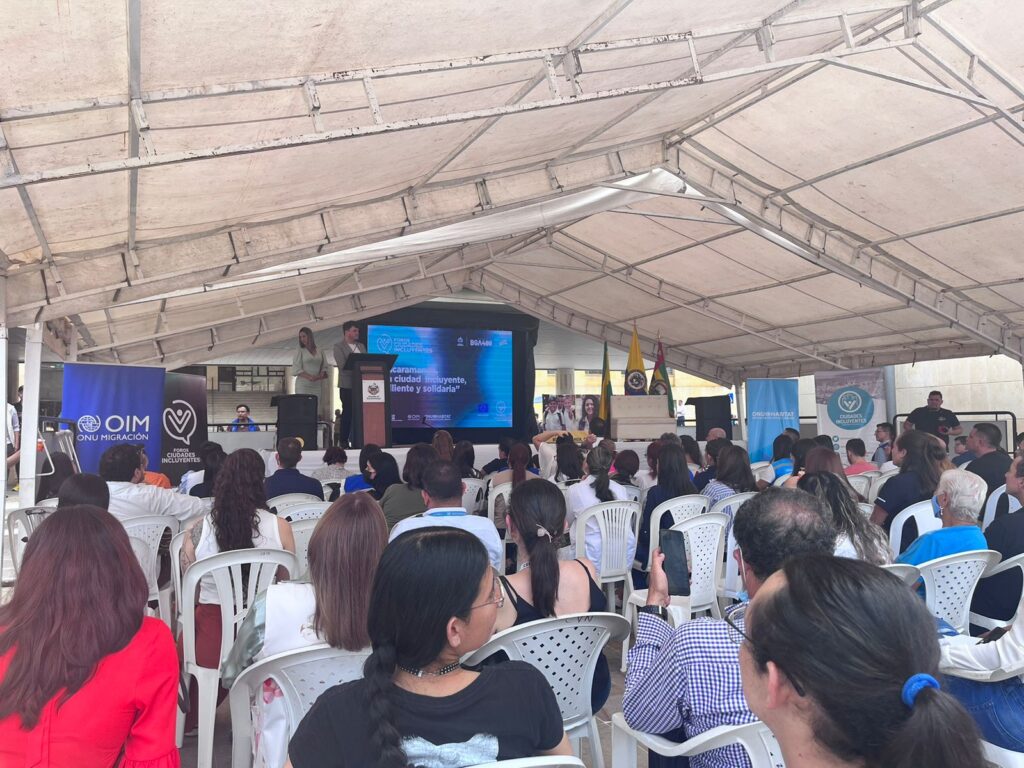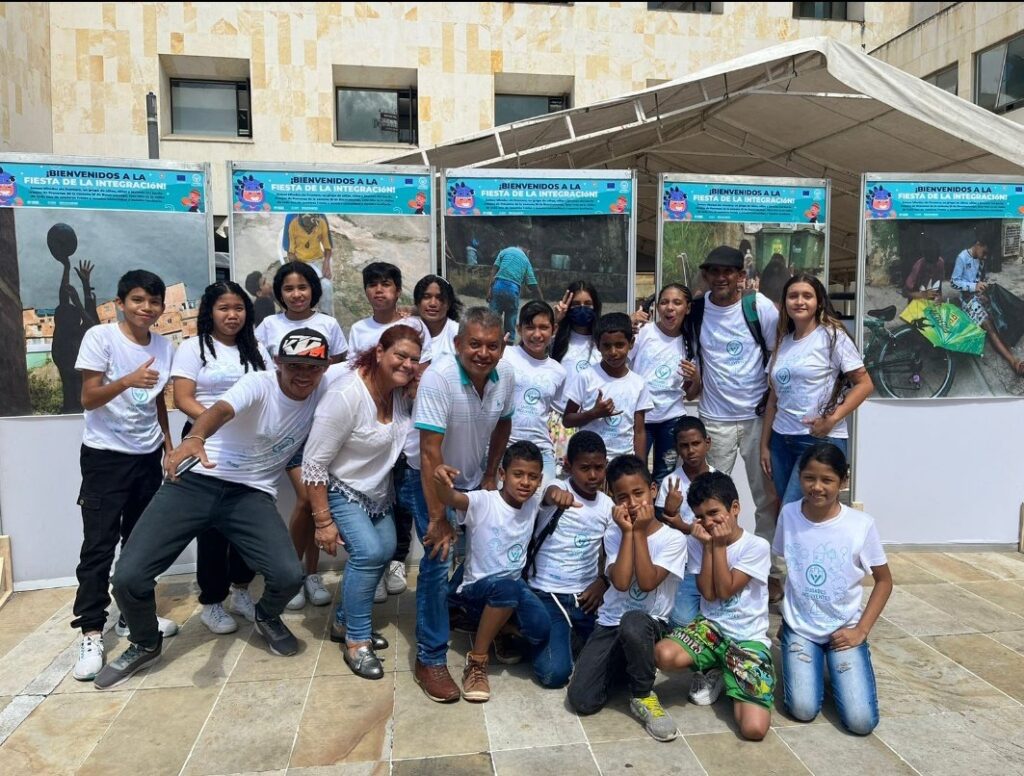
On October 14, the Inclusive Cities forum Bucaramanga: An inclusive, resilient and supportive city, took place in the square of the mayor’s office in the capital of the Santander department. Having full attendance, various groups of people met in order to discuss several topics of interest to citizens regarding integration and inclusion.
The event was opened by Jorge Neira, secretary of social development of Bucaramanga; Gustavo Andrade, from UNHCR; Glenda Lozano, from IOM and Roi Chiti, Coordinator of UN-Habitat Andean Countries.
“Spinning dreams, the path of entrepreneurship and integration”, was the first panel of the forum, in which challenges in socio-economic integration faced by refugees and migrants were addressed, highlighting the regularization of the population, employability, financial inclusion and access to social protection, among others.
The cases of two Venezuelan businesses, Otto San Sushi and Confexiones Fabialex, which generate jobs and economic integration, were shared. There was also a conversation about how to eliminate barriers so that more women can access employability, since we must not only talk about empowered women, but also talk about women with resources and willing to contribute to the economy.
Next, a discussion was held on urban improvement through the legalization of settlements, in which a review of the diagnosis of the public policy of legalization of settlements was presented as well as a video on the exchange made with the University of Michigan regarding to this matter. Officers from UNHCR, Goal Colombia and the Bucaramanga Planning Secretariat participated in the conversation.
Subsequently, a dialogue panel was held on an inclusive city from the social construction of the territory, moderated by Jorge Neira, secretary of social development of Bucaramanga, in which community representatives participated, as well as Tatiana Cortés, an expert in gender equality and Miguel Pardo, expert in public policy. The importance of achieving dignified aging, the gender approach in the enjoyment of the city, as well as the challenges, difficulties and strengths for the consolidation of a generation with purposes, were the topics addressed in this panel.

The afternoon session began with the cocreation workshop “Walking City: Building New Social Landscapes”, in which a group of experts interacted with the public present, jointly creating potential solutions to generate healthy social landscapes. This was followed by a tour of the Miradas Sin Fronteras photographic exhibition, in which a group of children and adolescents from the refugee, migrant and host community presented the photographs they took, after receiving training in this art. by the Inclusive Cities project.
The forum concluded with a tour of the entrepreneurship fair “Towards Socioeconomic Integration”, in which entrepreneurships developed by Venezuelan migrants and refugees and the host community were presented. These projects have also been supported by the Inclusive Cities program.